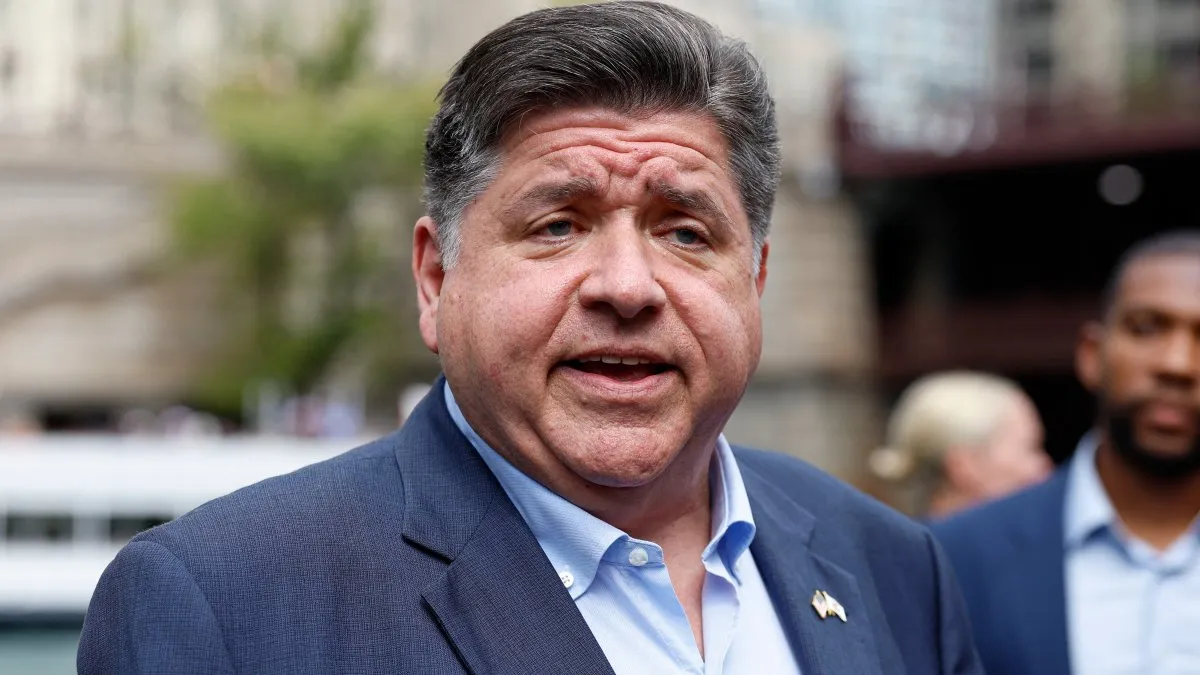
On Monday, Illinois Governor J.B. Pritzker delivered a passionate warning to President Donald Trump regarding the president's recent threat to send the National Guard to Chicago to combat crime. Pritzker's remarks were firm, stating, "If you hurt my people, nothing will stop me - not time or political circumstance - from making sure that you face justice under our constitutional rule of law."
President Trump announced on Friday that he plans to deploy the National Guard to Chicago as part of his strategy to address violence in several U.S. cities, a move that started with similar actions in Washington D.C.. The president has increasingly focused on public safety, particularly in Democratic-led cities. "We will solve Chicago within one week -- maybe less," Trump claimed, labeling the city a "killing field." He added, "Chicago's a disaster and the governor of Illinois should say, 'President, will you do us the honor of cleaning up our city? We need help.' They need help."
Trump did not provide a timeline for these measures, stating, “We may wait -- we may or we may not. We may just go in and do it, which is probably what we should do.” He expressed a preference for being invited to assist rather than imposing federal troops uninvited, criticizing Pritzker and other local politicians as "corrupt."
In a press conference, Pritzker was joined by influential figures, including Chicago Mayor Brandon Johnson, Illinois Attorney General Kwame Raoul, and U.S. Senators Tammy Duckworth and Dick Durbin. Pritzker firmly told Trump, "Mr. President, do not come to Chicago." He asserted that Trump was neither wanted nor needed in the city, labeling the president's plans as "unprecedented, unwarranted, illegal, unconstitutional, and un-American."
Pritzker emphasized the importance of heeding the alarm he was raising, indicating that Trump's plans for military intervention were not only unnecessary but also a gross overreach. "This is exactly the type of overreach that our country's founders warned against," he stated, urging citizens to recognize the implications of such actions.
Senator Duckworth described the situation as “deeply unfortunate and obviously unnecessary,” emphasizing her military background and asserting that service members do not join the military to quell domestic unrest at the behest of a president she deemed a “10-pot dictator.”
Illinois leaders voiced their concerns about the lack of communication from the Trump administration regarding the proposed deployment. Senator Durbin pointed out that a genuine effort to combat crime would involve collaboration among local officials rather than unilateral federal intervention.
Interestingly, statistics show that violent crime in Chicago has significantly decreased in the first half of the year, with shootings down by 37% and homicides dropping by 32%. Kimberley Smith, director of national programs for the University of Chicago Crime Lab, noted that crime rates vary greatly across neighborhoods, with some experiencing homicide rates as much as 68 times higher than others.
Mayor Johnson reinforced that Chicagoans are not calling for military intervention, stating, "The last thing that Chicagoans want is someone from the outside of our city, who doesn't know our city, trying to dictate and tell us what our city needs."
Legal experts and state officials have raised questions about the legality of Trump's potential troop deployment. Governor Pritzker cited the Posse Comitatus Act, which restricts military involvement in domestic law enforcement, suggesting that Trump's actions could be unlawful. Attorney General Raoul echoed this sentiment, affirming that there is no current emergency in Illinois that would necessitate the use of National Guard troops.
As tensions rise between state leaders and the Trump administration, Governor Pritzker concluded with a call for peaceful protests if federal troops are deployed. "Hopefully, rational voices will prevail in the coming days. If not, we’re going to face an unprecedented and difficult time ahead," he warned.
The ongoing discourse highlights the stark divide between federal and local authorities, as well as the complexities of addressing crime in urban areas like Chicago without resorting to military force.